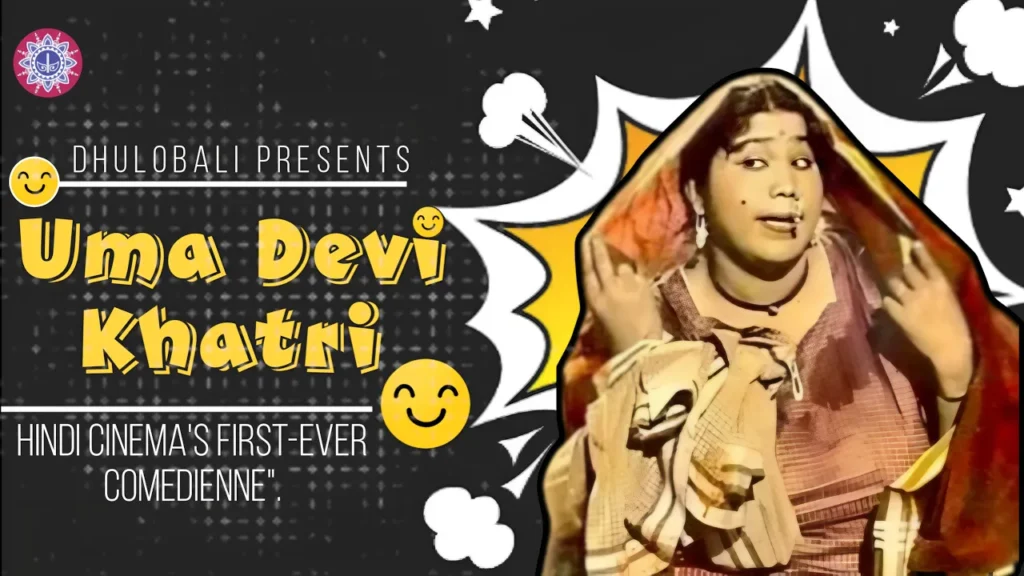Uma was born in a small village near Amroha District of present-day Uttar Pradesh, India in 1923. Her parents and brother were murdered for land arrogate. Just before two days of her demise she had been interviewed by film critic and historian Shishir Krishn Sharma. She said: “I don’t remember who my parents were and how they looked, I would be two to two and half years when they passed away, I had a brother eight or nine years old whose name was Hari, I just remembered that we were living in a village named Alipur. One day brother was killed and left as maidservant to relatives in exchange for two times meals, that time I was four or five years old”. She arrived in Bombay (Mumbai) at the age of 23, having run away from home, and knocked on composer Naushad Ali’s door. She told him that she could sing and that she would throw herself into the ocean if he didn’t give her a chance. He auditioned her and hired her on the spot. She made her debut as a solo playback singer in Nazir’s Wamiq Azra (1946). She soon signed a contract with the producer-director A.R. Kardar, who used Naushad as music director, and went on to make a place for herself amidst music stalwarts like Noor Jehan, Rajkumari, Khursheed Bano and Zohrabai Ambalewali. In 1947, she had huge hits with “Afsana Likh Rahi Hoon Dil-e-Beqarar Ka”, “Yeh Kaun Chala Meri Aankhon Mein Sama Kar” and “Aaj Machi Hai Dhoom Jhoom Khushi Se Jhoom”, which she sang for actress Munawar Sultana in A.R. Kardar’s Dard (1947), again under the music direction of Naushad, she also sang a duet; “Betaab Hai Dil Dard-e-Mohabat Ke Asar Se”, with Suraiya. In fact, a gentleman from Delhi was so enamoured by her song “Afsana Likh Rahi Hoon”, that he stayed with her in Bombay. They got married, and the couple had two daughters and two sons; her husband, whom she called Mohan, died in 1992. The success of Dard meant that she next received Mehboob Khan’s Anokhi Ada (1948), which again had two hit numbers, “Kahe Jiya Dole” and “Dil Ko Lagake Humne Kuch Bhi Na Paya”. This brought her into the league of highly rated-playback singers. She reached her peak as a vocalist in director S.S. Vasan’s Chandralekha (1948) made by Gemini Studios, Madras. Her seven songs, which include hits such as “Saanjh Ki Bela” remain her most accomplished work in her singing career, though signing for the film also meant a breach of contract with producer-director Kardar, which led to her dwindling fortunes in the industry.
ভারতবর্ষের প্রথম মহিলা কমেডিয়ান | উমা দেবী খাত্রি | Uma Devi Khatri

